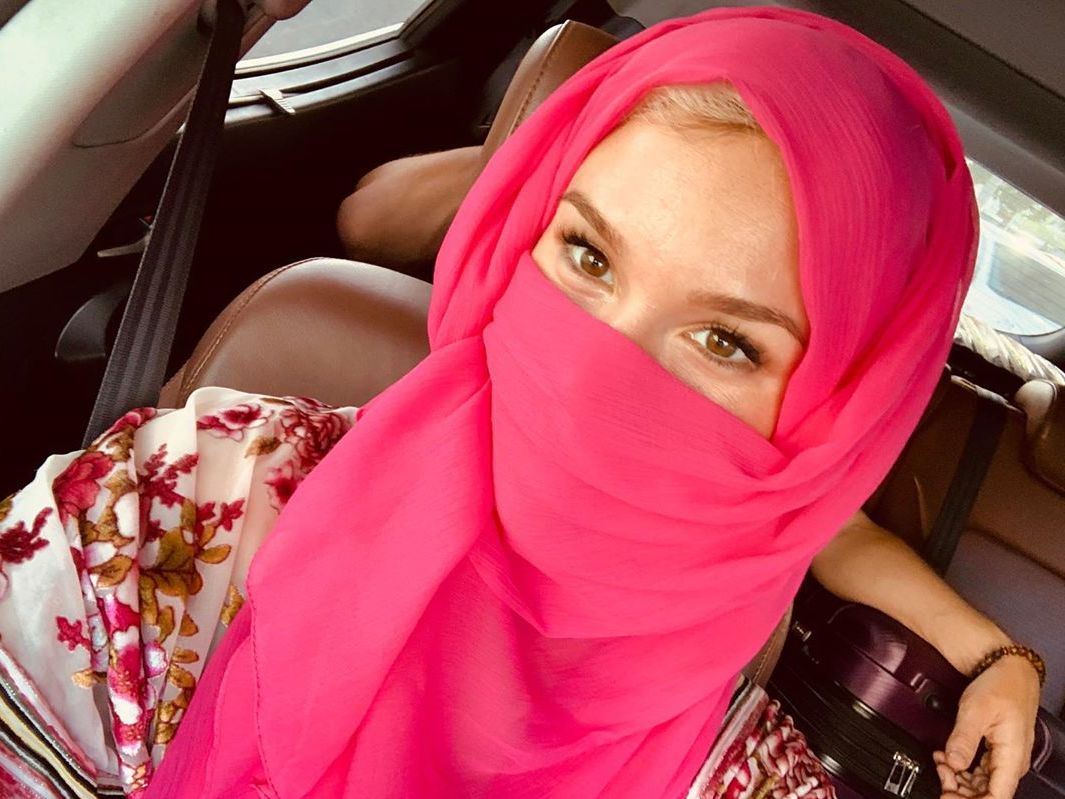Joss Stone sparks debate after posting picture wearing niqab on Instagram
‘The hijab is not a symbol of a free, powerful woman, it is one of oppression’

Joss Stone has sparked a debate about the oppression of women in Saudi Arabia after sharing a photograph on Instagram of herself wearing a pink niqab during a visit to the country.
A niqab is a veil that covers the entire face other than the eyes, while the hijab is a headscarf which leaves the face visible.
In the picture’s caption, Stone wrote that she “loves” the garment, and described the women that she’d met during her trip as “strong and exercising their choice to be free, wear what they want and do what they want”.
“To each her own,” the singer added, explaining that she spoke to women working in a variety of professions who “felt they were not oppressed” and were “free to choose how they lived their lives”.
While some of Stone’s Instagram followers praised her for sharing her experience of Saudi Arabia, others criticised her for her views concerning the traditional Muslim headscarf.
“The hijab is not a symbol of a free, powerful woman, it is one of oppression,” one person commented.
“It is Sharia law compliance by force, not by choice. Western liberal progressives and feminists are falsely portraying the hijab as something beautiful and powerful.”
“Sorry Joss, I never criticised your posts before, I do not agree with this one,” another added.
“Wearing hijab is not a ‘fun’ thing, it is not even a ‘cultural thing’, it is a religious symbol of oppression and control over women.”
In November last year, women in Saudi Arabia launched a protest against the abaya, a full-length robe worn by some women in the Muslim community, by wearing the garment inside out.
Eight months prior, the Saudi Crown Prince Mohammad bin Salman had stated that it is not compulsory for women in the country to wear the abaya, as long as they dress in a “decent and respectful” manner.
However, many women in the country still feel as though they are required to wear the garment, which is why they decided to launch the “inside-out abaya” movement.
While there are those who believe that women who wear niqabs, hijabs, burkas and abayas are being forced to do so, many Muslim women state that it is their choice.
Tahira Noor, a Muslim woman who has worn a burka for 20 years, told BBC Radio 5 Live that wearing the garment is “100 per cent my choice”.
“It’s not a must. It’s not an obligation. However… [it] gets you closer to God. It’s a spiritual thing more than anything else," Noor said.

In March 2018, an Iranian woman who publicly removed her headscarf in spite of the country’s mandatory hijab law was sentenced to two years in prison.
Earlier this year, Stone performed at a bar in North Korea as part of her effort to play in every country in the world.
While Britons are not barred from visiting North Korea, the Foreign Office advises against travelling to the country except in cases of essential travel.
Join our commenting forum
Join thought-provoking conversations, follow other Independent readers and see their replies
Comments
Bookmark popover
Removed from bookmarks